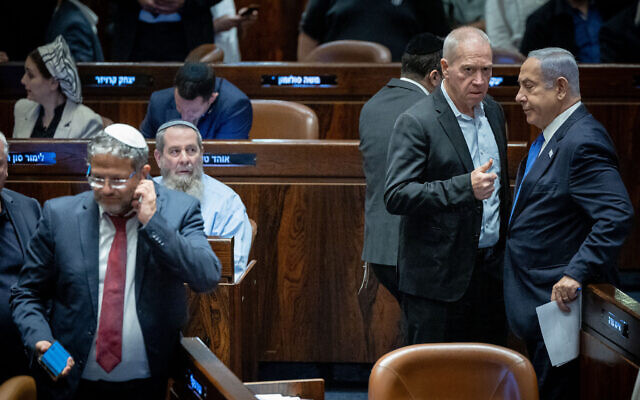Israeli officials acknowledge Qatar’s indispensable role in mediating Gaza captive release talks amid ongoing tensions.
Israeli officials have said that no other country except Qatar can mediate a captives’ release deal and called out all criticism towards the Gulf mediator, according to an Al Jazeera report on Sunday, which cited Israeli media.
The officials noted that the Israeli criticism of Qatar came despite the fact that Israel was the one who asked Doha, through the United States, to host the Hamas office.
“Doha fulfilled the Israeli requests and for this reason, Israel has no right to attack it,” the report said, citing the anonymous Israeli officials.
Doha has hosted the Hamas political bureau since 2012 in response to Washington’s request to maintain a channel of communication. This has proven vital in previous and current mediation efforts in Gaza.
The Gulf state does not share ties with Israel and staunchly refuses to normalise ties with it as long as it continues to violate Palestinians’ rights.
Talks aimed at reaching a ceasefire have stalled since the expiration of a truce last year that lasted between November 24 and December 1. Mediated by Qatar and Egypt, the truce led to the release of at least 110 captives from Hamas in Gaza.
Despite Qatar’s past and ongoing mediation efforts, it has been on the receiving end of criticism by Israeli officials, including Prime Minister Benjamin Netanyahu, and U.S. diplomats.
This was seen in January when Netanyahu described Qatar’s mediating position as “problematic” in leaked audio recordings. Netanyahu then said he stood by his inflammatory remarks.
Then on April 4, Israel’s economy minister Nir Brakat accused Qatar of being “untrustworthy” and “a threat to peace” in the world in an interview with Bloomberg.
At the time, Qatar’s foreign ministry spokesperson Majed Al Ansari slammed Brakat’s remarks as “Qatar-bashing” and “baseless accusations.”
“Rather than being preoccupied with supporting in the efforts to secure a deal, Minister [Brakat] finds his time is better spent attacking the mediators who are working round the clock to reach a deal that ensures the release of hostages and stops the bloodshed,” Al Ansari said in a post on X.
Meanwhile, last week, U.S. Democratic Congressman Steny Hoyer criticised Doha’s mediation role and threatened to “re-evaluate” the ties between Washington and Doha.
The Qatari Embassy in Washington hit back at Hoyer’s inflammatory comments, which it said were surprising and not “constructive.”
Then on April 17, Qatar’s Prime Minister Sheikh Mohammed bin Abdulrahman Al-Thani called out the “exploitation and abuse” of his country’s diplomatic efforts and said Doha is “re-evaluating” its mediation role.
“Unfortunately, we have seen that there is a misuse of this mediation for narrow political interests, and this necessitated the State of Qatar to carry out a comprehensive evaluation of this role[…] and evaluate how all parties engage in this mediation,” Sheikh Mohammed, who is also Qatar’s foreign minister, said at the time.
“There is exploitation and abuse of the Qatari role. This abuse is unacceptable,” Sheikh Mohammed added during a joint press conference with Turkish foreign minister Hakan Fidan.
Israel’s relentless genocidal war on Gaza has neared its seventh month without a ceasefire in sight, killing more than 34,000 people while causing a humanitarian catastrophe. The figure does not include thousands of bodies believed to be trapped under the rubble.
Qatar, Egypt and the U.S. have been exchanging proposals between Israel and Hamas.
However, Israel has repeatedly rejected Hamas’s demand for a complete ceasefire, unconditional return of internally displaced people to the north, and full withdrawal from Gaza.
In a video address on Sunday, Netanyahu accused Hamas of rejecting Israel’s proposals, vowing to continue its attacks on Gaza.
“It has only hardened its conditions for the release of our hostages. It is hardening its heart and refusing to let our people go. Therefore, we will strike it with additional painful blows – and this will happen soon,” he said.
The Israeli broadcasting authority also reported on Sunday that Netanyahu held a war cabinet meeting, the first in 12 days, where he lashed out at the negotiators.
He described the negotiating team’s briefings as “fake” and that they only harmed efforts to return the captives. Some of the 133 remaining captives already died in Gaza either as a result of Israel’s non-stop attacks or prevention of the entry of food and medicine.
Despite staunchly backing Israel’s war under the pretext of “right to self-defence”, the U.S. is reportedly planning to impose sanctions on Israel’s Netzah Yehuda battalion.
The military body has operated in the occupied West Bank, where attacks and arrests of Palestinians have soared since the beginning of the war in Gaza. Axios broke the story on Saturday citing three U.S. sources with knowledge on the matter.
If the reports are accurate, this would be the first time the U.S. imposed sanctions on an Israeli military entity. Under the sanctions, the military unit will not receive Washington’s assistance or training, according to Axios.
The reports angered Netanyahu, who defended the Israeli military unit’s actions.
“I will strongly defend the IDF, our army and our fighters. If somebody thinks they can impose sanctions on a unit in the IDF – I will fight this with all my powers,” he said, referring to the name of Israel’s military.
Netanyahu is in hot waters and mounting domestic pressure to return the captives. Tel Aviv has been witnessing almost daily protests since the beginning of the war, with the public calling for his resignation.







